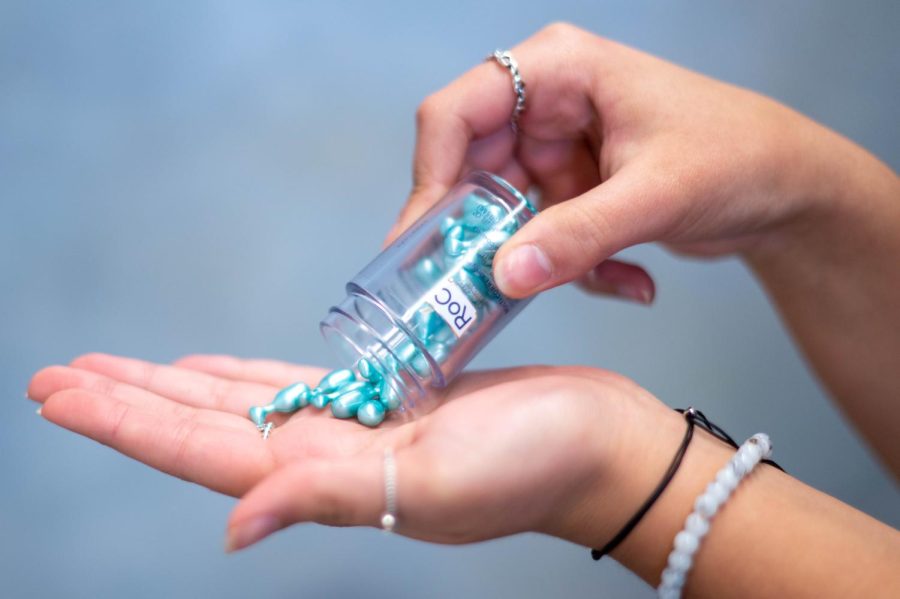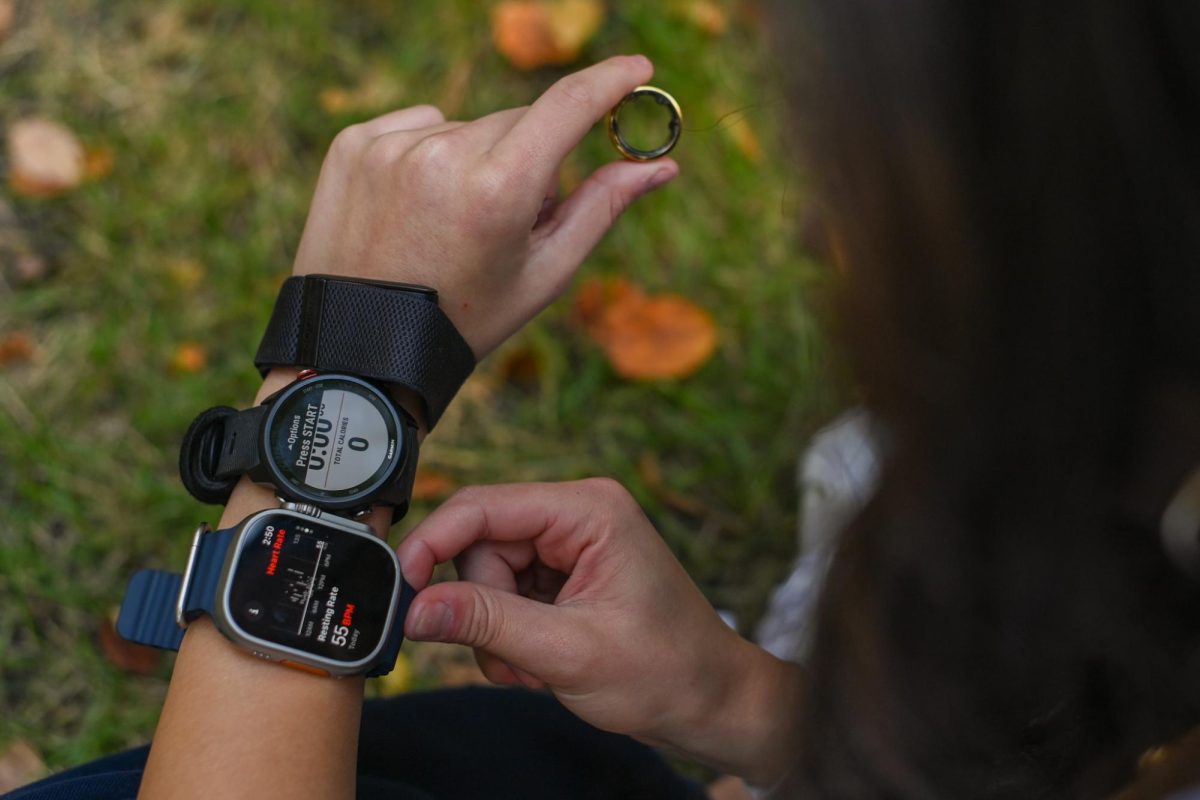‘Ingestible’ skincare offers trendy yet ineffective supplement
BEAUTY BOOST: Often in the form on pills, beauty supplements are sold to help boost hair, skin and nail health, but frequently lack effectiveness.
May 3, 2023
Scrolling through social media, brightly colored sponsored posts regularly pop up on many teenagers’ feeds, specifically advertising supplements or vitamins to help consumers with their skin, hair and nail health. Sophomore Leila Rezania, upon seeing these advertisements on TikTok, went to Ulta to buy hair and nail supplements to help recover from a bad haircut. However, after taking the capsules for an extended period, she didn’t see an improvement.
Ingestible beauty supplements, while helpful to some, are not only often ineffective, but also pose potential safety risks due to their lack of federal regulation.
“I took, like, one for my hair and one for my nails,” Leila said. “I took it every day for I would say, like, three months, maybe, but it just didn’t do anything, I swear.”
Similarly, sophomore Helen Kraemer did not see results from Here Comes the Sun, a skin supplement from the brand HUM Nutrition, and struggled with having to take it regularly.
“I don’t use it anymore just because it’s difficult when you have to continually have vitamins every single day for — I think it’s like six weeks or something to really make an impact,” Helen said.
According to dietician Marla Brodsky, who heads Luscious Life Nutrition, there are many possible reasons that could cause these supplements to be ineffective.
“Collagen can help to repair the lining of the GI tract,” Ms. Brodsky said. “The problem is that a lot of these things that people eat also have sugars and artificial colors and flavors and chemicals that can become inflammatory, so it’s kind of defeating the purpose.”
When it comes to these supplements, Ms. Brodsky also recognizes the health risks.
“Vitamin supplementations can have toxicities, so people, for hair and skin for example, can take Vitamin A,” she said. “That can build up. It’s a fat, soluble vitamin, and it can build up in your liver and cause toxicity.”
Rather than taking beauty supplements, Ms. Brodsky recommends teenagers simply watch the types of foods they eat.
“Make sure that you’re not overdoing it on sugar and processed foods, so ultra-processed foods. Make sure that you’re getting enough protein, so keeping your blood sugar even by combining protein, carbs and fats equally,” Ms. Brodsky said.
Some supplements can have positive effects, as Helen saw after taking one to help with dry hair. She said she only stopped using it because she was too lazy to remember.
“My hair was shinier and obviously not as brittle anymore,” Helen said. “It just felt a lot healthier.”
Leila described her experience with beauty supplements as disappointing but has instead found topical products that work in place of these supplements, such as the Mielle Rosemary Mint Oil to help with hair growth and acrylic nails.
In all, Ms. Brodsky said healthy eating habits are the best way to care for one’s hair, skin and nails, rather than an ingestible supplement, despite their marketing.
“Looking at health from the inside is more important than trying to take a supplement or putting something on your skin from the outside,” Ms. Brodsky said. “It’s much more effective and you need to look at the root cause of why this is happening, not just treat the symptoms.”












